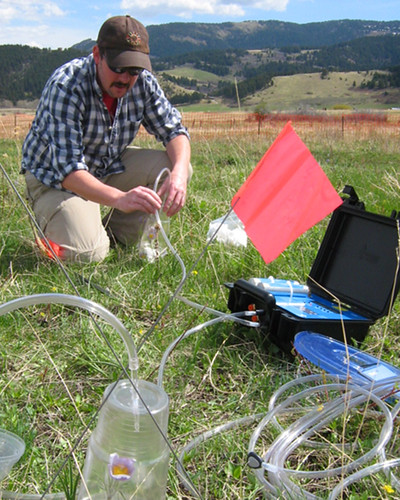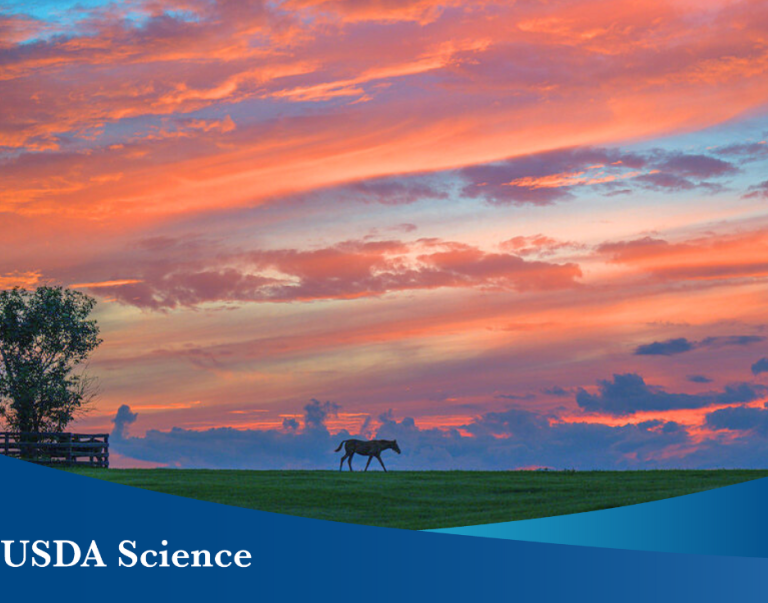
It’s a wonder that Justin Runyon’s parents didn’t have insomnia. After all, who could sleep when the young bug enthusiast was throwing on floodlights outside the house in the middle of the night to attract and collect insects?
“Yes, my parents were very patient with me,” said Runyon, a research entomologist at the Forest Service’s Rocky Mountain Research Station.
Runyon no longer needs to wake his parents to conduct his research – he has plenty of opportunity to do that at his lab in Bozeman, Mont., where he studies the chemical interaction between insects and plants. His work and accomplishments earned him this year’s prestigious Presidential Early Career Award for Scientists and Engineers. The accolade is the highest honor bestowed by the U.S. Government on science and engineering professionals in the early stages of their independent research careers. Runyon was one of 102 recipients to receive the award this year.
“The impressive achievements of these early-stage scientists and engineers are promising indicators of even greater successes ahead,” President Barack Obama said. “We are grateful for their commitment to generating the scientific and technical advancements that will ensure America’s global leadership for many years to come.”
Runyon joined the Rocky Mountain Research Station in 2008 after graduating with his doctorate in entomology from Pennsylvania State University. He focused his research on the chemical interactions between plants and insects, examining how plants respond when being fed on by insects. He found that some plants actually evolved and developed a defense mechanism by producing a toxic compound in its leaves. This information, says Runyon, could be used to determine the effectiveness of biocontrol methods – where insects are introduced into an environment to control an invasive plants species.
“I’ve been so impressed with his work,” said Deborah Finch, Runyon’s supervisor. “His field is unique at the Rocky Mountain Research Station. It shows that if a young scientist can find their niche within their discipline, they can make a big difference in their career, to the agency and the U.S.”
The 37-year-old scientist says his interest in bugs started at an early age while growing up in Clintwood, Va., a rural community in the Appalachian Mountains. His family home was set in the woods, allowing young Justin plenty of opportunity to spend time outdoors, exploring nature. A fifth-grade project prompted him to start his first bug collection. From then on, he collected every variety of insects – caterpillars, flies, beetles – which he kept in a terrarium in his room, much to the chagrin of his twin sister, Janine.
“She didn’t share my love for insects,” said Runyon.
Thankfully, Runyon now pursues his passion in the comfort of his own lab.



